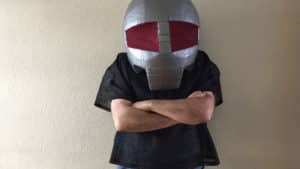Is Regular Martial Arts Classes better than a Self-Defense class

Regular martial arts classes vs self-defense classes
In our experience, most people want to defend themselves—but it can be hard to commit because of popular misconceptions about the experience. Many people imagine a scary drill sergeant barking commands and swaggering around intimidating everyone. Let’s clear that up and tackle the differences between class types while we’re at it.
What to expect in a class
All our classes are fun, engaging, and informative. Students are introduced to real martial arts principles while they practice foundational skills like situational awareness and adrenal response. We begin by using games and foundational practice to teach basic skills, then add tools to help manage interactions under pressure.
We also do our best to dispel any myths and misconceptions that come from sports systems, exercise classes, and movies and entertainment. Many of our students first come to a class with a clear (and wrong) idea about what violence looks like and what it means to defend ourselves and others in violent situation. Total Ryu Jujitsu and Karate are both solutions to this attitude, and even our self-defense classes are fantastic for reframing expectations.
However, our one-off sessions are meant as a quick fix to a short-term issue. For a long-term solution and ongoing practice, the real martial arts we practice in our regular classes help students develop, practice, and maintain self-defense practices and principles.
Which one should I do?
Self-defense classes are a great introduction for basic low-level skills, and can be a focused review for out of practice students. They’re a step into the world of martial arts, and a beginning at setting real expectations. We offer both kinds of classes to help all our students access as many skills as their schedules might allow.
But if you really want to learn self-defense, making the weekly commitment to a class session is critical for skill retention. Skills are perishable: they need to be practiced and performed again and again, ingrained in the body so they’re accessible during a real adrenal response. Even calmer skills, like what we all learned in grade school, can easily be forgotten without regular practice—just look at the success of Are You Smarter Than a Fifth Grader?
A one-time class will help you learn a skill that lasts for a short period. Skill loss for physical skills is much greater than it is for information retention because our bodies lose the conditioning that allows for practiced movement. If you’re not doing something similar on a regular basis, your body will forget how to perform our techniques. You’ll lose what you only learned once.
Regular practice, whether jujitsu or karate, is how our students develop long-term self-defense capacity. While many other systems and sports have moved to competitive performance as a measure of skill, Total Ryu has kept to the traditional meaning of martial arts, or warring arts. We apply proven training methods to real world scenarios, developing long-term skill retention through regular adrenal response pressure and varied repetition. Our students learn skills that can be applied in any situation: grabs, holds, strikes, multiple-attacker defense, ground survival, and of course a range of incapacitating throws.
Our focus on variety helps students develop efficient and adaptable techniques. While no martial art is truly complete, we do our best to cover the reality of violence and the unpredictability of real-world encounters.
We know that making an ongoing time commitment is challenging. A short-term quick solution can be tempting, and it’s definitely better than nothing. But real self-defense just isn’t the kind of skill that can be learned in a one-shot class. Our systems can, though, be learned in just one class per week—though you can do more if you want. Karate also emphasizes self-practice with technique review and applied and group drills during class time, so it’s a good option if you’re worried about managing your time.
Choose your path and become a martial artist—or at least someone who can defend yourself in any situation you might encounter.



